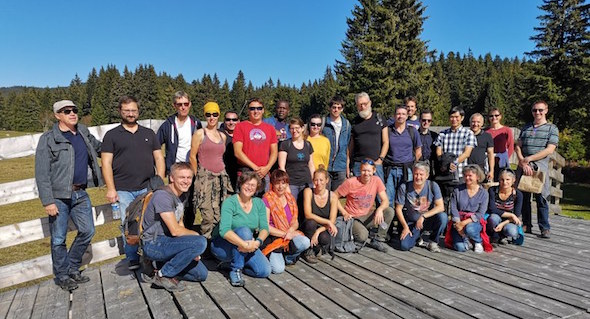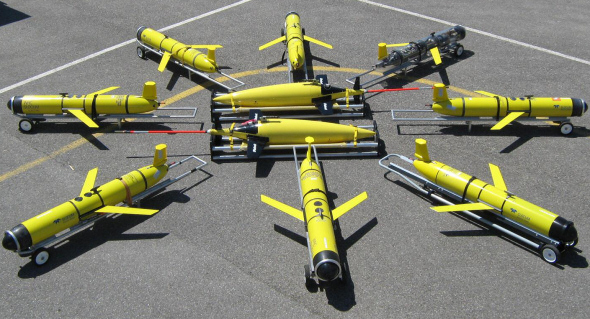Technical and human means
The technical deputy director of the INSU accompanies a certain number of challenges of instrumental development for the scientific programmes of the Institute. Furthermore, it identifies strategic skills to be maintained and/or developed within its laboratories.
Missions of the technical deputy director
To develop actions of project support, to accompany and co-ordinate R&D actions, to anticipate the technical needs of the laboratories and project teams, especially during preliminary phases of major projects, including skills and technical means, ensuring, for the INSU technical monitoring and support of projects and participation in prospective studies. These missions can be broken down as follows:
Instrumentation and animation monitoring of professions
- To drive the qualitative and quantitative prospective evolution of technical professions especially those which are specific to instrumental and observational needs of the Institute, via training programmes (ANF) and professional networks;
- To accompany the organization of professions through networks and dedicated training programmes;
- To contribute to the organization of congresses and thematic schools for the INSU laboratories;
Project monitoring and support
- To contribute at the national level to the monitoring and support of major technical projects (steering committees or monitoring and support, reviews, key points);
- To ensure the technical monitoring and support of the space laboratories for the INSU, or those implicated in major technical projects and interfaces, with the CNES in liaison with the DS and DAS concerned,
- Do develop activities of project quality: methods, product insurance etc.
- To ensure with the help of the director of the Technical Division (DT) the monitoring and support and the installation of the means for national instruments;
- To ensure the link between laboratories and the DT, jointly with the department team, for their needs concerning development or deployment of means of observation (see the INSU technical division site);
An example of a technical project: a visit to the LAM SPATIAL technical platform during the integration of the Euclid NISP, FIREBall, and SUBARU PFS instruments.
Monitoring of the Institute prospective
- To participate in the prospective organized by specialized commissions and by programmes;
- To co-ordinate the R&D at the INSU and ensure the monitoring of resources that are affected to this;
Monitoring of national infrastructures
- To ensure the technical monitoring and support of national infrastructures;
- To accompany the co-ordination of support for major campaigns of measurements;
- To ensure the monitoring and support of calls to tender that are instrumental for the support of national means.
Click on the link to visit the site of the Technical Division of the INSU (in French).
Actions and projects
Networks of professions
Networks of professions which help the INSU to support instrumental development and means of observation.
- MAPI (in French) MAnagement of the INSU Project
- Project quality
- Network of Lithopreparators (in French)
- SIST (in French) - the technological network of computer scientists and observational data managers
- TechMar - the network of Marine Technologies
- MSK (in French) - the "Underground and Karsts media" professional network
- Docplanets (in French) - the network of professionals of the Scientific and Technical Information of the INSU

National Training Action Initiatives
These National Training Action Initiatives help Engineers, Technicians, and Instrumentalist Researchers acquire or complete the skills needed to carry out their missions.
Apart from the training courses proposed by the professional networks of the CNRS managed via MITI, the INSU proposes training specific to its needs. Depending on the case, these training courses are proposed every year or every two years, for more specific, occasional requirements or on an ad hoc basis. These training sessions may be proposed jointly with other Institutes, especially the IN2P3 or INEE. Our current training activities are the following:
- Training sessions planned for 2019:
- System Engineering (in French) 4th to 7th February 2019 at the Observatory of Haute Provence
- Training sessions planned for 2019, but for which the date will be specified later:
- ISOTRACE – Analysis of elements by TRACE and RAdiogenic ISOtopes in Earth Sciences
- Technological Platform (TeMpeTe)
- RESOMAR (in French) / TAXO – Network of Marine Observatories and Stations
- Lithopreparator (in liaison with the INEE and the INSHS)
- Project management (co-ordinated by the MAPI network, in liaison with the IN2P3)
- MSK (in liaison with the INEE and the INSHS)
- Quality (in liaison with the IN2P3 and the "Quality in Research Network" of MITI)
- Recurrent training sessions that will not be run in 2019:
- Concurrent engineering
- TechMar – the network of Marine Technologies
- SIST (in French)
Support to teams through technical assistance
The INSU ensures the establishment and monitoring of technical assistance contracts in liaison with the DDAI of the CNRS.
The vocation of these contracts is to allow laboratories to access technical support services in support of teams with the competence to supervise them.
A first contract gives access to product insurance benefits.
Work is currently underway on a broader contract which would provide access to a whole group of benefits necessary for the technical needs of laboratories.
Technical platforms
Technical platforms ensure support to the INSU IR/TGIR or SNOs
